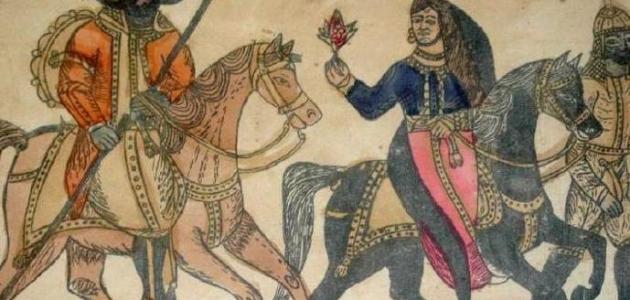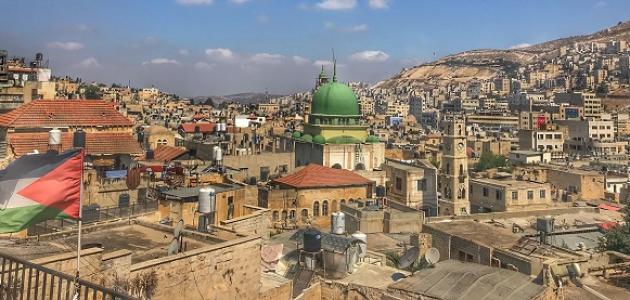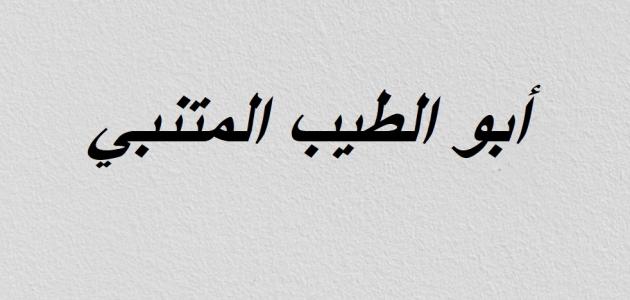The poet who satirised himself, his mother and his wife
For the Arabs during the pre-Islamic era, poetry was a craft that they glorified and were proud of. However, the matter was not without the existence of some poets who took poetry as a means of living, earning money from it and building their glories, at the expense of satirizing and praising people, so many poets were known for their mastery of this joyful art at times and sometimes sad Others, which was a concern for Al-Mamdouh for fear that the poet would turn against him and satirize him later.
Al-Hateah
Perhaps the most prominent of that group of satirists is Bashar bin Burd, Jarir, and Al-Hatea, who did not hesitate to satirize himself, his mother, and his wife with amazing poems in expressions, despite not uttering vile or dirty words. Al-Hata’a is the poet Jarul bin Aws bin Malik Al-Absi, and he was nicknamed Abu Malika.
descent
His lineage goes back to Mudar bin Nizar, and it was stated by Abi Al-Faraj Al-Isfahani in his famous book Al-Aghani, that Al-Hatia is one of the children of adultery, so his father is called Aws bin Malik, and his mother is called Al-Daraa, and she is a slave.
There is no doubt that Al-Hata’a, due to the fact that his mother is not free, deprived him of the honor of being proud of his lineage and his birth, but he was trying to be proud and cling to his ancient lineage to his father, and all his endeavors that he made in order to join his brothers did not work, as his brothers rejected him and disowned him, so he stood up He spelled them many poems, and left them.
Read also:Search for Taha HusseinHair
Most of the poets of that era were known for their chivalry and magnanimity, and for their pride in everything they mastered in terms of lineage, lineage, and knowledge. However, Al-Hatea, in view of the ugliness of his face, his ugliness, his short stature, and his sharp tongue, realized that he would only be able to make a place for himself through the poetry he mastered.
This poet was raised in a state of discontent with his time and his destiny, so he was stripped of his emotions and his intimacy with his tribe, so he moved between the tribes, at times he affiliated himself with the tribe of his father’s children, and at other times with the tribe of his mother and uncles, to lose the spirit of modesty and fanaticism that the Arabs are proud of, so he defended the tribe that He gains benefit from it, and with that he deliberately praised the one who did not deserve it, and exaggerated in praising those who did not deserve it, in return for the gifts that were lavished on him, so that his praise would not turn into satire and hit the praised one with the worst expressions of slander, slander and satire that he was also famous for, and therefore people were afraid of his tongue and avoided him.
The sources mention that Al-Hata’a married Umm Malika, and had many children from her, and despite his greedy behavior in dealing with people, and despite his constant haste to heal and take revenge on people, he was very kind and loving to his wife and his children as well, and it was said that it was because he was deprived of his The sympathy and hate that he met in his life, he lavished all his sympathy and tenderness on his family as no man had done.
Read also:Where was Shakespeare born?But despite his great love for his family, he could not help but satirize his wife at the first occasion he saw as deserving of satire, to overcome his nature of love, just as he satirized his mother before her on several occasions, and satirized himself in different poetic verses. Al-Hutayah died in the year XNUMX AD, corresponding to the year XNUMX AH.
Read also:The life of Tawfiq al-HakimBusiness
It is noteworthy that the poet Al-Hata’a has a collection of poetry, in which most of his poems, which he composed in praise and also in satire, were collected, in addition to poems of pride. It was printed for the first time in the year one thousand eight hundred and ninety AD in Constantinople, and printed for the second time in the year one thousand eight hundred and ninety-three AD in Lipsik, and it was reprinted for the first time. The third year one thousand nine hundred and five AD in Egypt.









